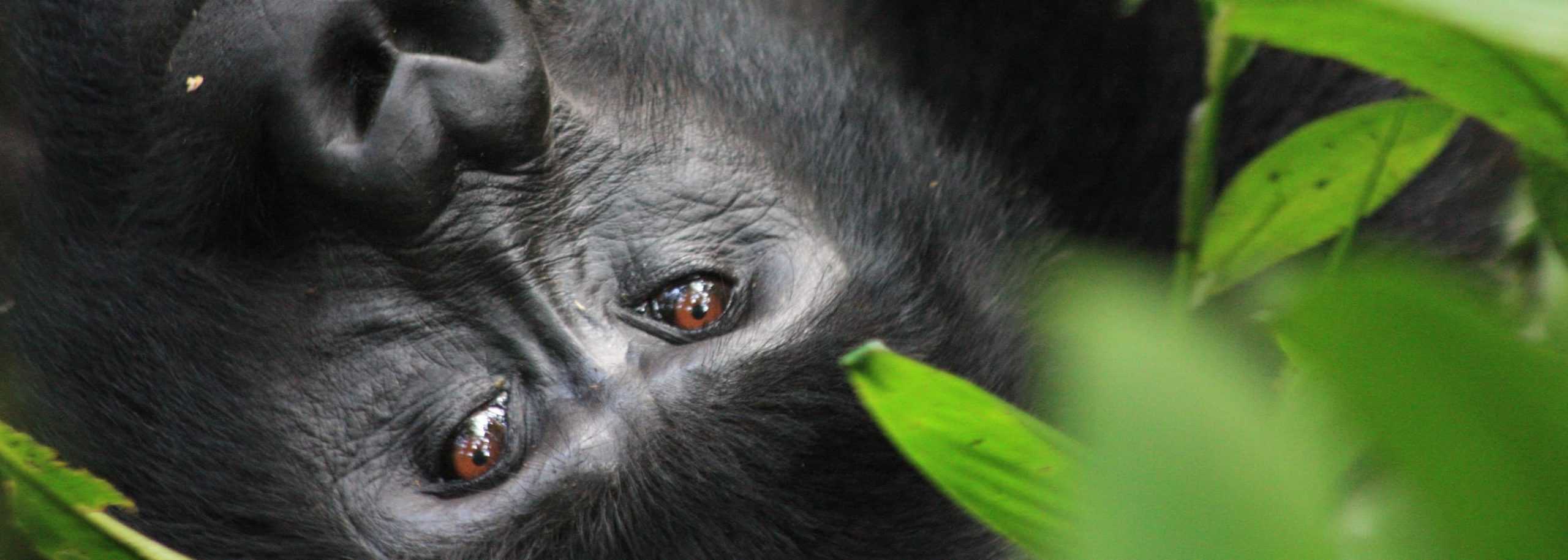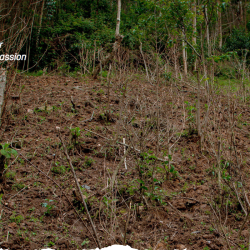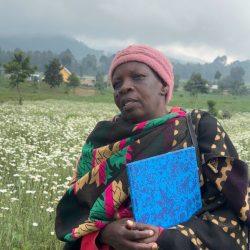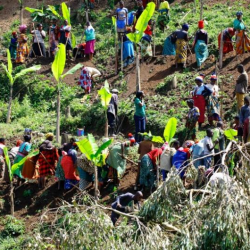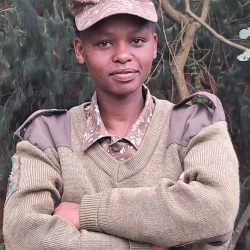World Ranger Day: Honouring the Foot Soldiers Who Protect the Endangered Mountain Gorillas
Blog | 30/07/24
In 2018, The International Union for the Conservation of Nature down-listed mountain gorillas from being “Critically Endangered” to Endangered, a status that resulted from the steady increase of the mountain gorilla population. The change in status is partly attributed to the commendable work of the rangers who tirelessly monitor and protect the mountain gorillas and other wildlife in the protected area.
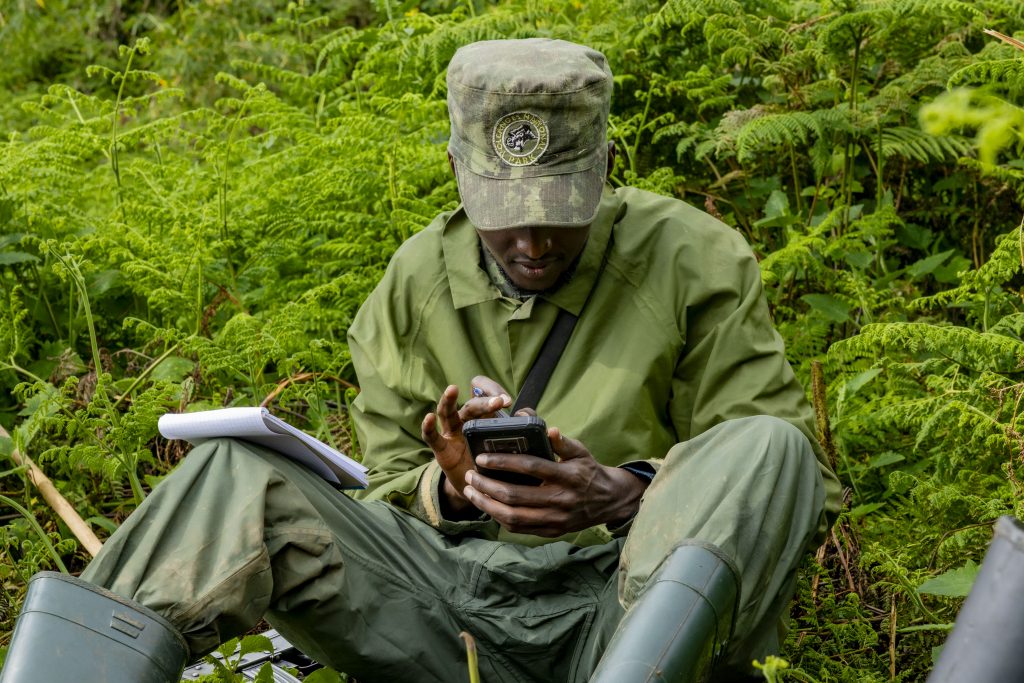
An Insight into a Ranger’s Day!
While most professionals can determine their day’s tasks guided by their periodic workplans, for rangers a day is as unpredictable as it can get! “Whenever I get into the jungle, I find a totally different experience! For the past 8 years, each day has been special and different,” says Joyleen Tugume, Ranger-Guide, Bwindi Impenetrable National Park.
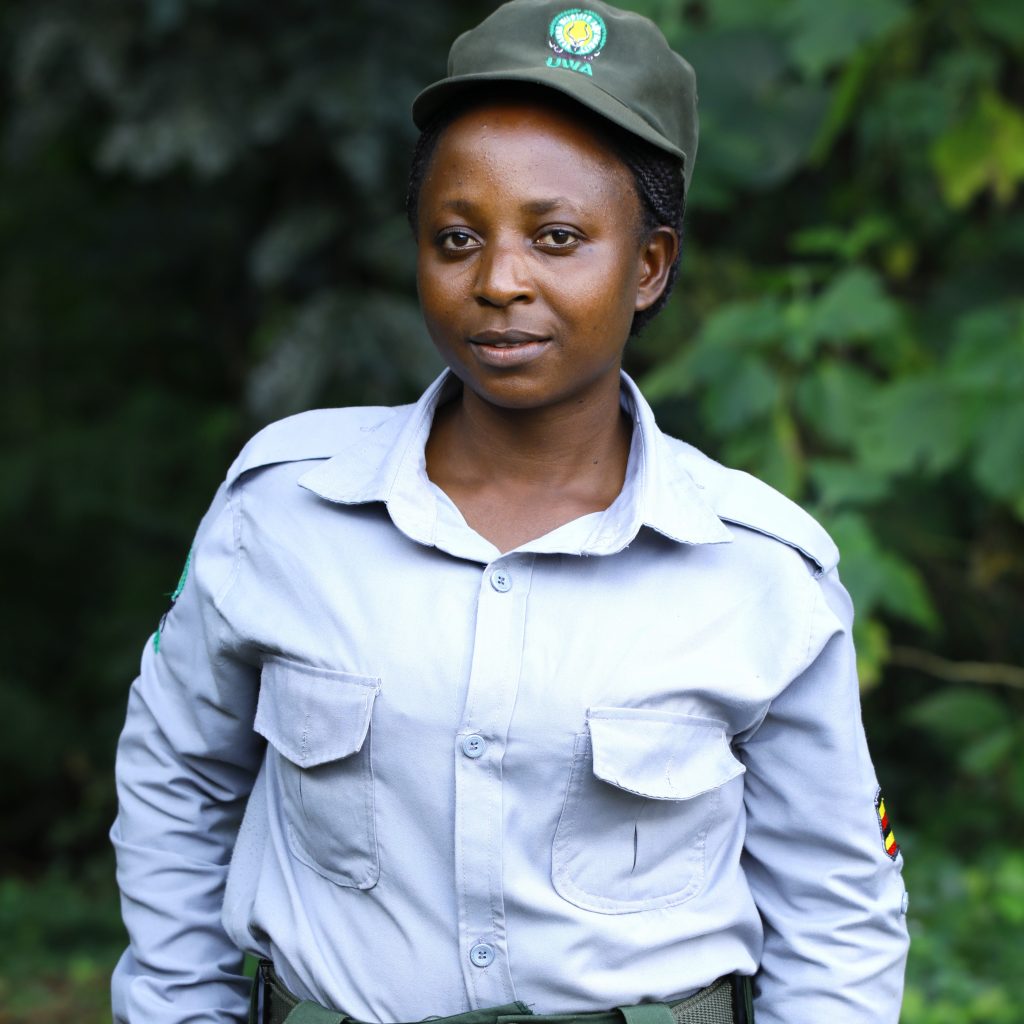
When they depart from their patrol posts at 6:00 am daily, rangers brace themselves for the uncertainty out there in the wild. The unpredictability ranges from prompt weather changes that often expose them to heavy rains, wet and slippery pathways, dynamic gorilla group movements where some groups range further than expected including higher elevation areas, running into aggressive wildlife like buffalo herds, or a group of poachers to landing straight into a fresh gorilla interaction.
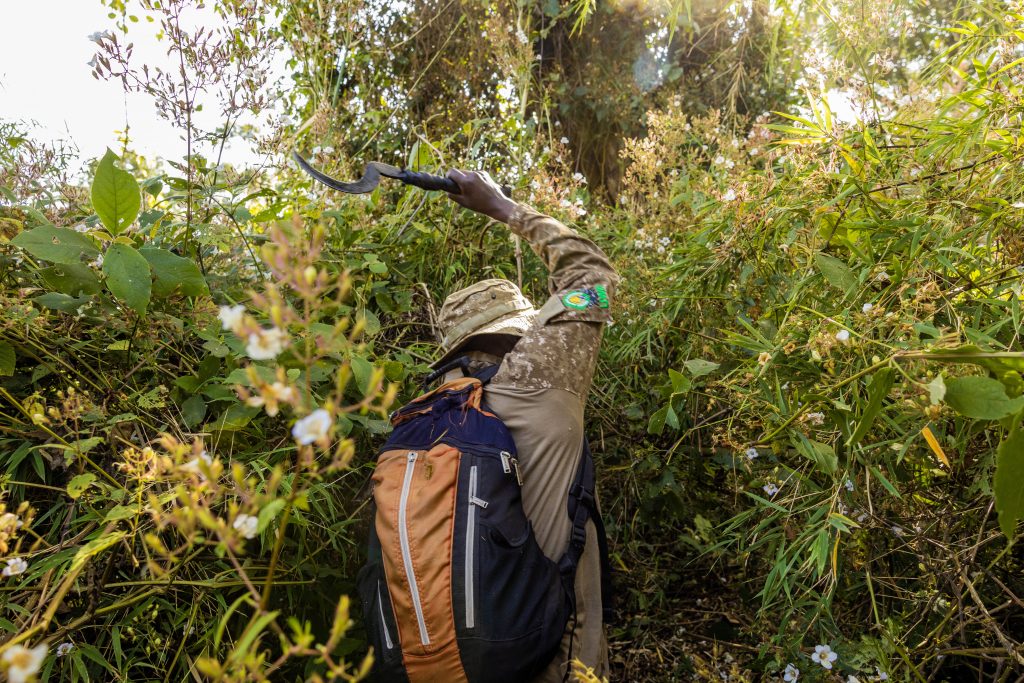
“We have learnt to expect anything at any time during work. We however still heed the noble cause of protecting wildlife,” says Theoneste Habyarimana – Ranger for the last 31 years – Volcanoes National Park.
Averagely, rangers spend between 2 – 4 to hours observing mountain gorilla groups. They observe individual gorilla health, behavior and movement patterns plus any unusual changes as well as the surroundings. “All these findings are reported to the authorities daily. This information guide’s management on the appropriate conservation interventions to take when and where; for example, if a gorilla individual is ill, urgent health interventions are requested: if a gorilla group goes out of daily monitoring for a month or so, shock patrols are recommended: if a gorilla group often leaves the park to range from community land, the park sensitizes the community on safe measures to protect the gorillas until they are guided back to the park,” says Dennis Magomu – Ranger – Volcanoes National Park. The mandate of rangers includes habitat monitoring and protection, reporting illegal activities in the protected area including timber/bamboo cutting, poaching, honey harvesting among others.
Against All Odds, Inspired to Love and Protect Nature!
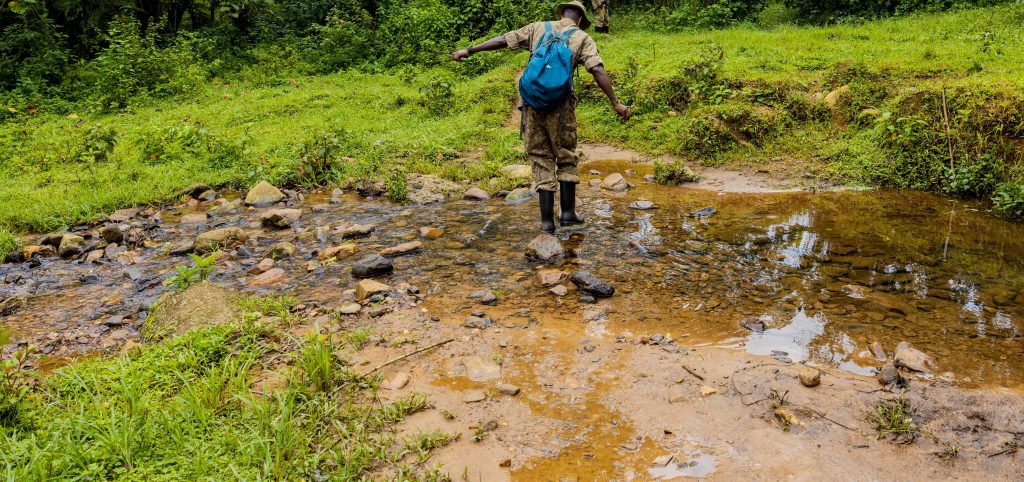
Being a ranger takes a lot of zeal, fitness and dedication and rangers daily put in the work. One would be wrong to think it is any easy job. Rangers around the Virunga Massif and Mgahinga Gorilla National Park are inspired by several reasons ranging from their love for nature and the benefits from work.
“Being part of the magnificent mountain gorilla conservation story fills my heart with joy! I have seen tourists shed tears of joy or smile at the sight of gorillas! This tells me that gorillas are precious animals worth conserving for generations,” notes Saidi Katumbi – Ranger Guide – Buhoma Sector – Bwindi Impenetrable National Park.
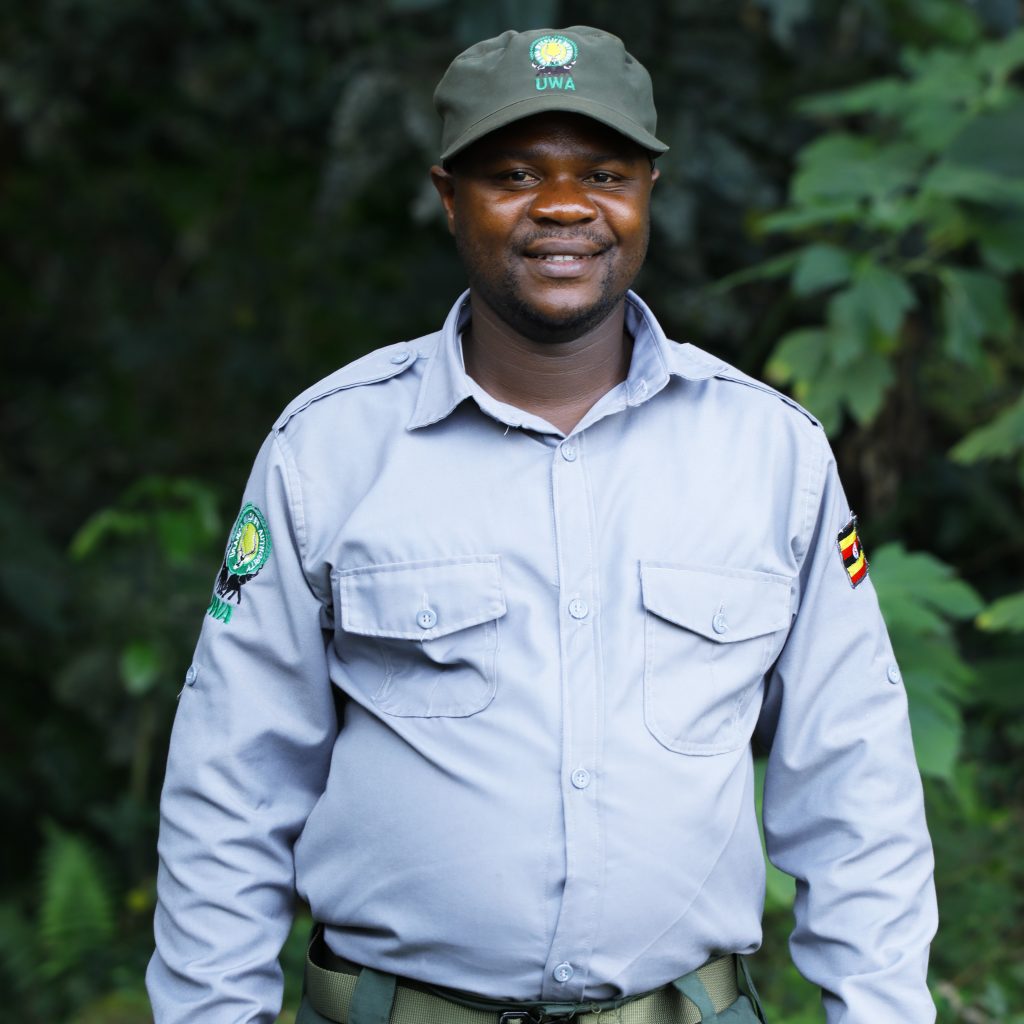
“Each day on this job is a new learning experience! I have learnt a lot in terms of conservation. I have interacted with experts and accomplished conservationists, and I have personally been privileged to impact the younger generation with conservation information. I am confident to call myself a conservation ambassador,” Boaz Muhumuza – Head Guide -Mgahinga Gorilla National Park.
Mupenzi Nsanzamahoro, Ranger – Volcanoes National Park on the other hand says, “I am fascinated and driven by tourist satisfaction. When visitors report a great mountain gorilla tracking experience, it makes me so happy! I am currently in charge of coordinating and linking field staff with tourists to ensure smooth operations”.

Regardless of the challenges and misconceptions that the ranger job is masculine, women have taken the mantle at executing ranger duties diligently.
“Female rangers are still few. I was personally discouraged by many at the beginning, calling it a job suitable for men. Anyhow, I beat the odds and have thrived at being a ranger for 26 years now and still counting,” says Honorine Uwiragiye – Ranger – Volcanoes National Park.
As for Prenious Katushabe, being a ranger is the best job ever! “I have the best job in the world! Being a ranger is an interesting job and I love it! Being in the forest with gorillas fills my heart with joy and satisfaction. People travel the world to come and visit gorillas, yet I am with these gems daily,” says Prenious Katushabe – Ranger Guide – Nkuringo Sector – Bwindi Impenetrable National Park.
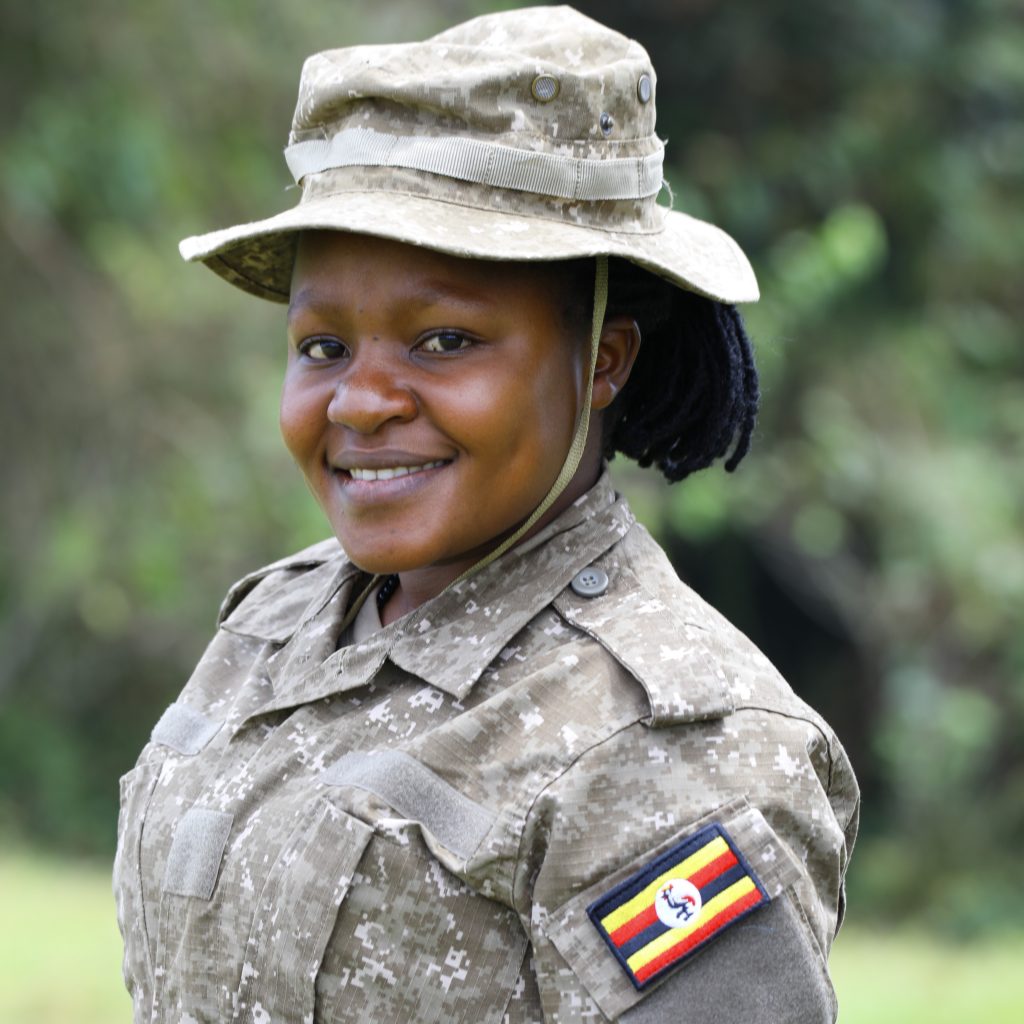
Overcoming Challenges!
While they are dedicated and determined to protect wildlife, being a ranger isn’t without challenges. “Our lives are put on the line everyday as we risk protecting wildlife. Like in 2017 as I headed a patrol, I almost lost my life when we landed in an armed ambush of poachers! All my colleagues died, and I believe God spared me because the environment and wildlife still needed my protection,” says Kasereka Babu Espoire – Ranger Virunga National Park – Mikeno Southern Sector.
Related to the above Patrick Boronya Kimanuka too almost lost his life at the hands of poachers in pursuit of ivory. Luckily, he survived the attack which claimed some of his colleagues.
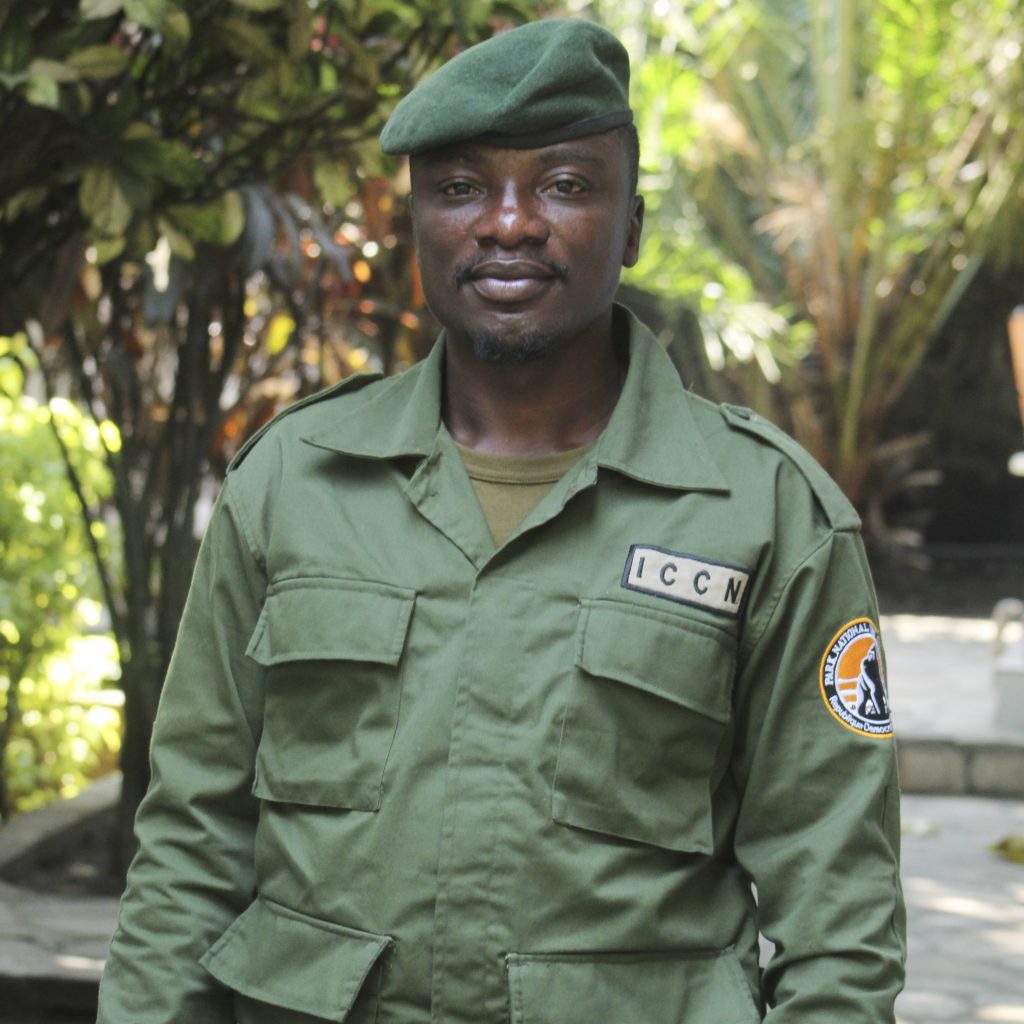
Apart from security, Rangers across the mountain gorilla range are faced with unique challenges but these have not interrupted their call to protect nature and the precious mountain gorillas. Commenting on the incredible work that the rangers do, Park authorities across the Virunga – Bwindi landscape express gratitude!
Nelson Guma – Chief Park Warden – Bwindi Mgahinga Conservation Area says, “Rangers do an incredible job and put their lives at risk to protect wildlife and biodiversity. Without them, wildlife wouldn’t have protectors. Their commendable work saves species and our heritage”.
In the same vein Prosper Uwingeli – Chief Park Warden – Volcanoes National Park says “We rely on rangers for mountain gorilla habituation, monitoring or even reporting illegal activities within the protected areas. Rangers are a gift to nature.”
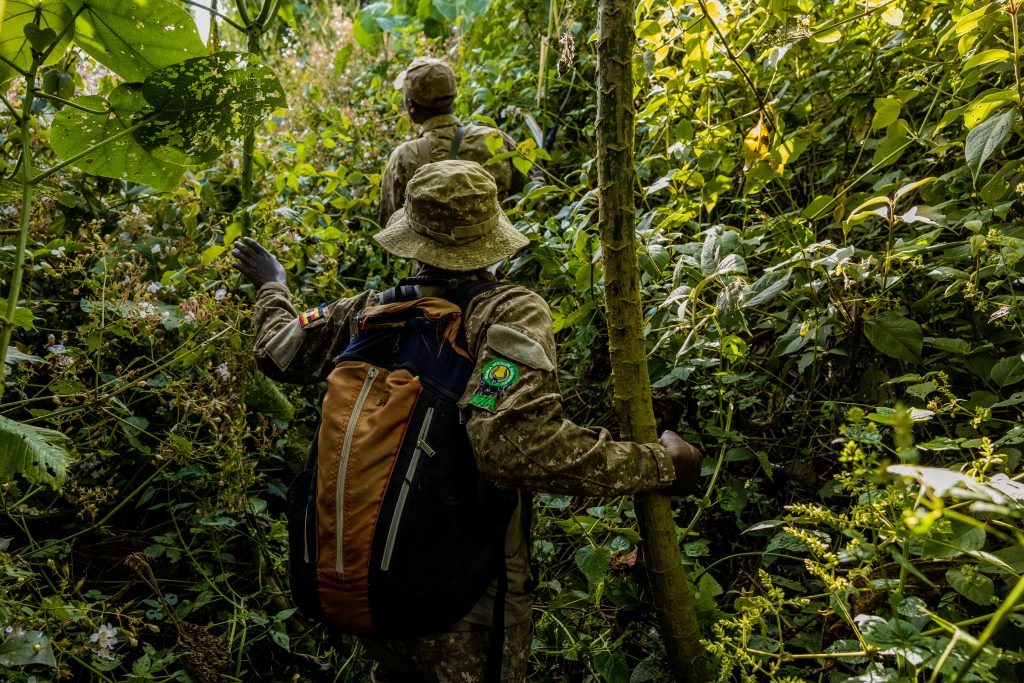
“Rangers are heroes worth celebrating every day. Like in our context, rangers put their lives at risk daily, but they still have not given up on saving nature,” says Jaques Katutu – Mikeno Southern Sector Warden – Virunga National Park.
Today IGCP joins the rest of the world to celebrate these great men and women who have made conservation their life mission. Every year on 31st July since 2007 the world celebrates World Ranger Day to commemorate Rangers killed or injured in the line of duty and to celebrate the work Rangers do to protect the planet’s natural treasures and cultural heritage.
“The planet would not be the same without rangers; these great men and women are protecting the earth and its wildlife. We celebrate them. Happy World Ranger Day from all of us at IGCP!” Wellard Makambo – IGCP Director.
